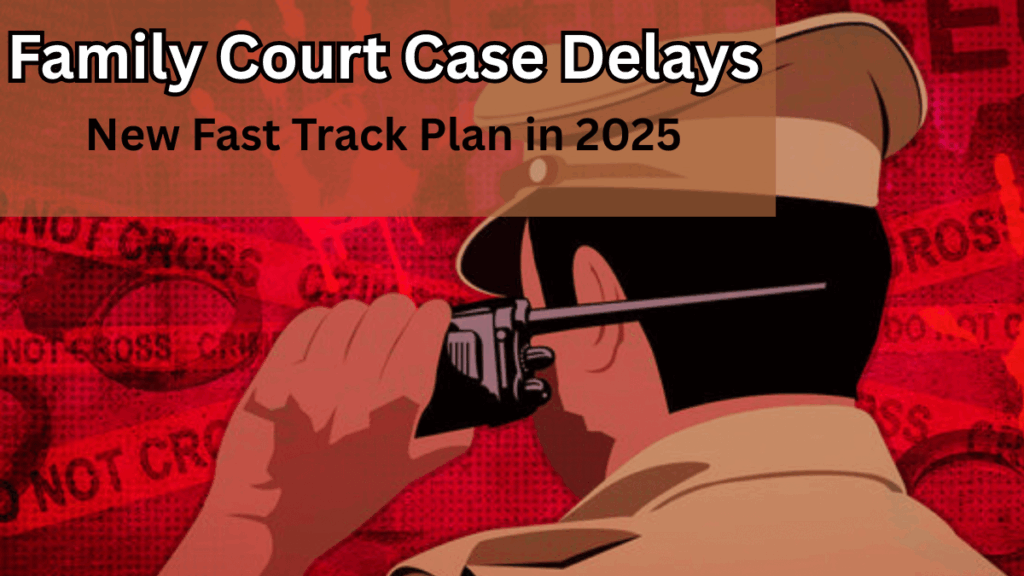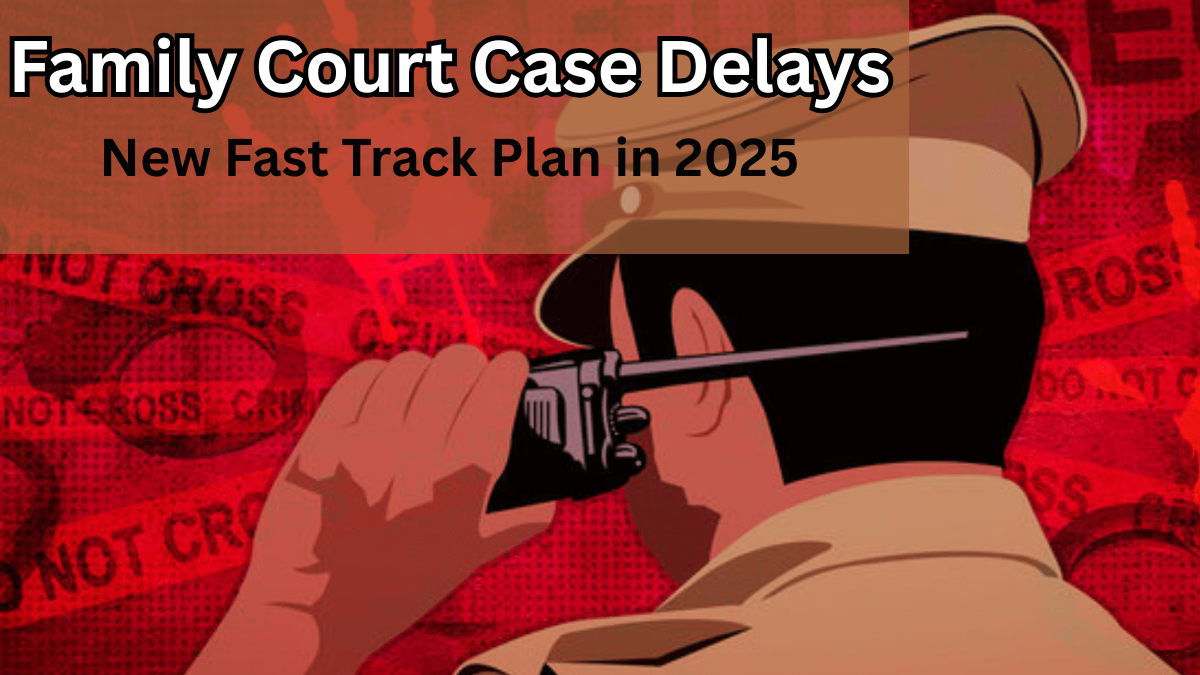Family disputes can be emotionally exhausting, and when court cases drag on for years, the stress only multiplies. Recognizing this, authorities have introduced a speed-up plan in 2025 aimed at addressing Family Court Case Delays and helping families find quicker resolutions.
This new initiative could be a game-changer for thousands of families awaiting justice.

Why Do Family Court Case Delays Happen?
Family cases often take longer than expected due to several factors:
-
Overloaded courts: Family courts often deal with a huge number of cases, leading to backlogs.
-
Lack of resources: Shortages of judges, court staff, and infrastructure cause slowdowns.
-
Multiple hearings: Complex cases like custody battles or property disputes require numerous sessions.
-
Adjournments: Frequent postponements due to technical or legal reasons add to the delay.
These issues have led to Family Court Case Delays stretching over months or even years — affecting children, relationships, and financial well-being.
What Is the 2025 Fast-Track Speed-up Plan?
The government has rolled out a speed-up plan specifically designed to address these challenges.
Key Features of the Plan
Initiative |
Purpose |
|---|---|
Appointment of new judges |
To reduce the burden on existing judges. |
Virtual hearings |
To make proceedings faster and more flexible. |
Mediation before trial |
To resolve disputes without lengthy court procedures. |
Strict adjournment limits |
To prevent unnecessary delays in hearings. |
Dedicated fast-track benches |
Special teams to handle time-sensitive cases like custody and support. |
How Will It Benefit Families?
This speed-up plan isn’t just about court efficiency — it’s about reducing emotional and financial strain.
-
Quicker resolutions: Families can move forward with their lives sooner.
-
Less emotional stress: Shorter proceedings mean less mental and emotional toll.
-
Cost savings: Fewer hearings and quicker outcomes help reduce legal costs.
-
Child-focused solutions: Faster judgments in custody or child support cases ensure the welfare of children isn’t compromised.
Who Will Get Priority?
Not all cases will immediately move to fast-track. The focus will be on:
-
Child custody disputes
-
Cases involving domestic abuse
-
Urgent financial support cases
-
Time-sensitive marital disputes
What Does This Mean for You?
If you’re involved in a family dispute, this could mean faster access to justice. The system is moving toward a speed-up plan that puts people first — aiming to reduce Family Court Case Delays and give families a better chance at rebuilding their lives.
FAQs
What is the main purpose of the new speed-up plan?
The plan aims to reduce Family Court Case Delays by introducing measures like additional judges, virtual hearings, and strict adjournment policies.
Will all family cases be fast-tracked?
No. Priority will be given to sensitive cases such as child custody, domestic abuse, and urgent financial disputes.
How will virtual hearings help?
Virtual hearings save time and resources, making it easier for parties to attend without unnecessary travel or adjournments.
When will the new plan take full effect?
The speed-up plan is being rolled out in phases throughout 2025, with full implementation expected by the end of the year.
Click here to learn more
